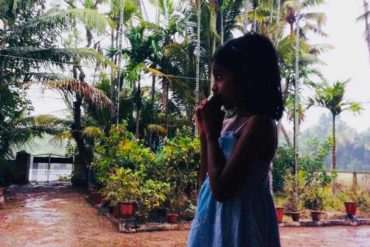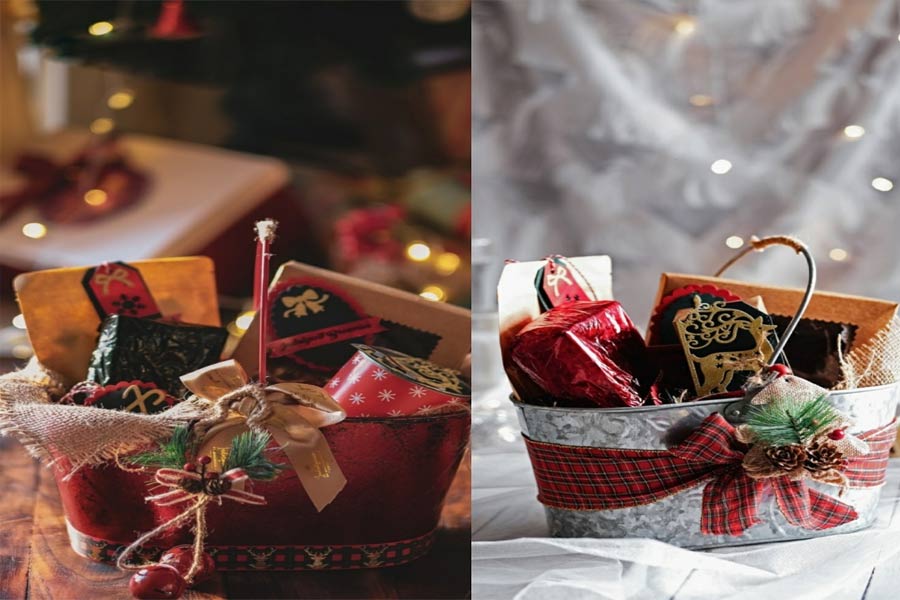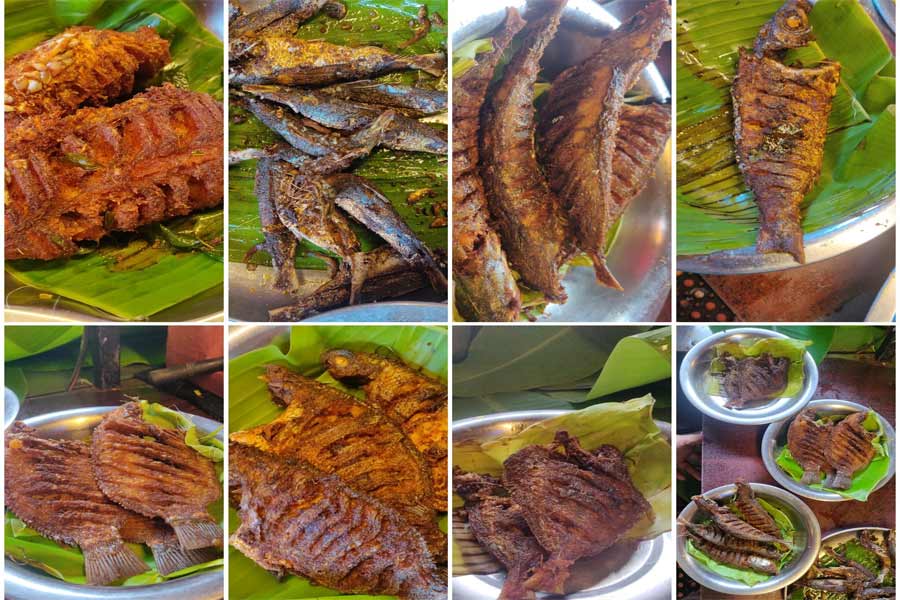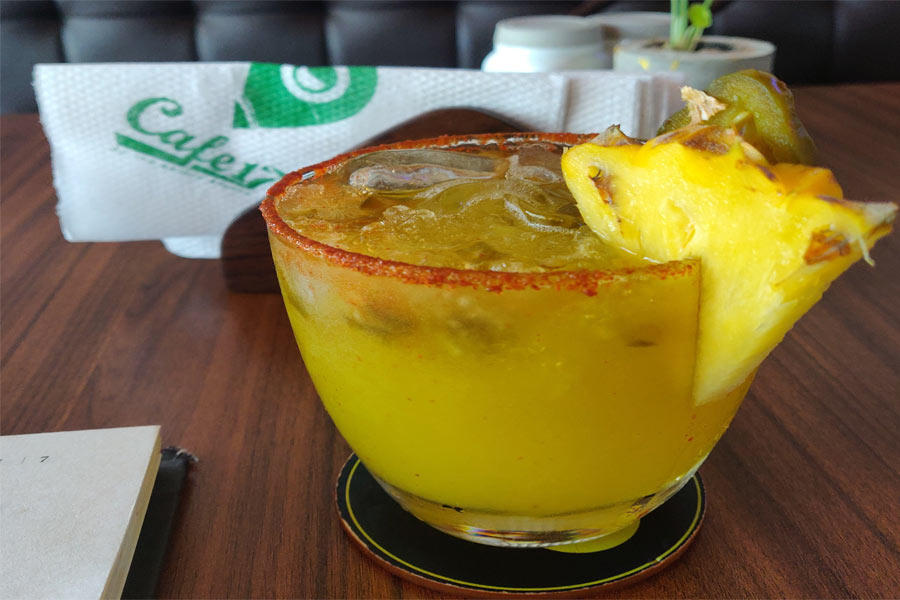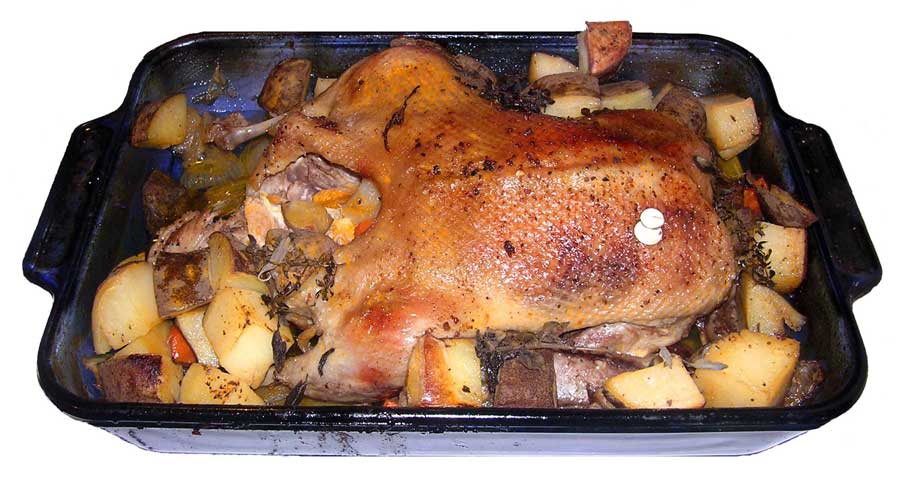Take the room and the table: whether the room was built for the table or the other way round would be a chicken and egg story. They were a perfect pair, made for each other. On a normal day, ten people could easily sit around it. And on special days, another four could be squeezed in without much ado. A bottle or two of pickle made from home-grown mangoes or lemon, a jar of rock salt and a few glasses were permanent residents there. Others would come and go depending on the time of the day.
Puttu that felt like fluffy pieces of cloud was an infidel. Her partner would change according to the fancies of the queen of the kitchen. If it was egg roast one day, it would be the turn of kadala the next. Ripe palayamkodan or njaali poovan pazhams mashed to an almost liquid state at times, honey at others, sometimes even treasured pieces of meat or fish pickle from the store room—boredom was never associated with it. Appams that were as soft as the skin on my ammachi’s face and stew was a Sunday staple.
Fish was a staple for lunch. River fish was the choice of flavor—anything else would be blasphemy for a race surrounded by water. The usual concoction would be red in colour and the inhabitants a kaari or a manja koori. These species are apparently extinct now. Anyway, coming back to the table, the king of all, karimeen used to make its appearance quite frequently—either as a fried version or a mappas.
The whole table would change its form when guests showed up. The stature of the guest would determine which new actors took the place of the usual suspects. Puttu would make its way for appam irrespective of which day of the week it was. Duck would replace chicken in the stew and metamorphose itself into the tastiest of roasts. Potatoes dunked in just the right amount of salt, cut into perfect rounds and fried would form the border in the serving dish. And additional course of bread and fish molee would be added to lunch. The karimeen fry would retain its royal space at the center of the table along with crisp and spicy meat cutlets. Thinly sliced onions and green chilies vigorously rubbed with pure kallu vinegar gave them company.
The dessert, inevitably the delicate pineapple pudding, turned upside down with a perfect deft of hand, swaying coyly in an equally delicate serving dish. In fact, turning this into the dish without even a tiny crack was a test every newly-wed bride that came into the family had to pass, to be accepted as a worthy member of the brood.
And then there was that special occasion. Once, at the most twice a year, specially made with love, care and uninhibited pride, a favorite brother-in-law, a pair of newly-weds that had to be impressed, the revered priest in the family, you had to be a certain grade above the cut to be honored with it.
Hatched at home, brought up on the best of feed, its day had arrived. And it was child’s play to catch a duck—unlike the chickens that roamed around, the ducks were always cordoned off except in the evenings when they were led to their customary frolic in the canal.
It was over to ammachi’s expert hands now—some chilies, ginger and garlic would be crushed; potatoes cooked, mashed and mixed with some concoction stuffed into the cleaned duck’s belly, its legs tied together and the rear stitched together with a twain—and then the duck would be made to glisten with homemade butter.
The Racold oven with its teal-coloured door would be hot and ready by then. In would go the duck, placed on a large tray. After half an hour so, the noses would start tickling; even the most insensitive ones couldn’t have missed the heavenly aroma. The door would be opened in between, the duck turned around, some more butter splashed on top and the baking would continue.
The oblong porcelain dish, decorated with artistically sliced and fried potatoes would be ready by the time the pièce de ré·sis·tance was brought out of the oven. The dish would be placed ceremonially at the center of the table, only after the guests of honor were seated around it. And it was only ammachi that had the right to that royal procession from the oven to the table. All the karimeens and cutlets of the world would be forgotten for the next few hours. Yes, meals those days were ceremonies that lasted for hours.
Ammachi’s whole duck roast was the stuff of legends our childhood was made of. As we grew up and she grew old, its appearances were few and far in between, until it finally stopped. By then, ducks had also become a commodity that was bought instead of being reared at home. None of her progeny even dared to make an attempt at it, but then, even an attempt at replicating perfection would have been a poor form of imitation in this case.
The legendary stories went on and we continued reminiscing about it. The taste, the prefect shade of golden brown every single time, how the potatoes inside came out without even a small lump in it, how the juices would ooze out thick—we almost lusted after it, trying to rebuild the taste on our tongues and in our minds.


